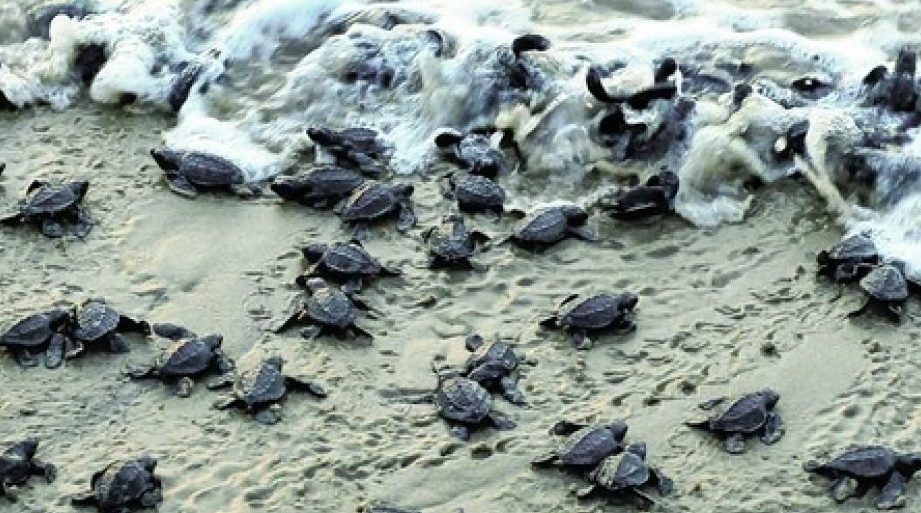Kendrapara: The Odisha government Monday imposed a seven-month-long prohibition on fishing activities within 20 km of the coast at the river mouths of Dhamara, Devi and Rushikulya, marking the beginning of the mass nesting season of the endangered Olive Ridley sea turtles.
A blanket ban on sea fishing remains enforced round the year at Gahirmatha coast, and now the prohibition was extended to the river mouths as turtles are set to begin mating ahead of mass nesting, said Divisional Forest Officer of Rajnagar Mangrove JD Pati.
The sole objective of the annual measure, which would remain effective from November 1 to May 31, is ensuring the safety of marine animals during their mating and breeding season, officials said.
The ban was clamped in accordance with Sections 2, 7 and 4 of Orissa Marine Fishing Regulation Act (OMFRA), 1982 and provisions of Wildlife Protection Act, 1972, they said.
The prohibition is clamped every year as turtles perish in larger numbers either by getting entangled in fishing nets or hit by fishing trawlers’ propellers, Pati explained.
It involves a multi-layered patrolling exercise, comprising Forest personnel, fisheries personnel, marine police, besides the Coast Guard. To ensure effective patrolling, 61 on-shore camps and five off-shore camps have been set up in the state’s four wildlife divisions – Bhadrak, Rajnagar, Puri and Berhampur, he said.
Provision has also been made for the armed police constabulary force to flank the forest and fisheries patrolling teams. Five high-speed boats, 13 trawlers and support boats have been pressed into service to intercept fishing in prohibited zones.
Thirty-eight trawlers were seized and 202 people arrested during the last nesting season, while around 3.5 lakh turtles laid eggs.
Around 10,666 fishing families will be affected following the fishing ban. To compensate for the loss of income, the state government has decided to extend one-time livelihood assistance of Rs 7,500 to the affected families, the official said.
The female turtles virtually invade the nesting beaches usually at the dead of the night for laying eggs. After indulgence in instinctive egg-laying, the turtles leave the nesting ground to stride into the deep seawater.
Hatchlings emerge from these eggs after 45-60 days. It is a rare natural phenomenon where the babies grow without their mothers, the official noted.
PTI
